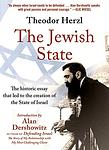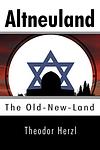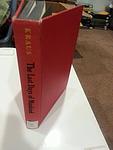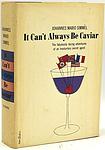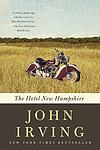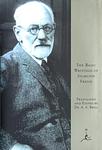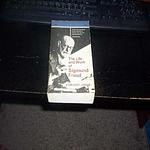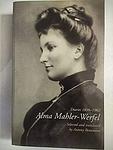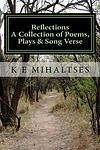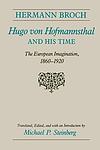The Greatest "Vienna" Books of All Time
Click to learn how this list is calculated.
This list represents a comprehensive and trusted collection of the greatest books. Developed through a specialized algorithm, it brings together 300 'best of' book lists to form a definitive guide to the world's most acclaimed books. For those interested in how these books are chosen, additional details can be found on the rankings page.
Genres
Countries
Date Range
Reading Statistics
Click the button below to see how many of these books you've read!
Download
If you're interested in downloading this list as a CSV file for use in a spreadsheet application, you can easily do so by clicking the button below. Please note that to ensure a manageable file size and faster download, the CSV will include details for only the first 500 books.
Download-
26. Beethoven's Letters by Ludwig van Beethoven
This book offers an intimate glimpse into the personal life and inner world of one of classical music's greatest composers through a collection of his correspondence. Spanning from his early years in Bonn through his rise to fame in Vienna and until his death, the letters reveal his relationships with family, friends, and fellow artists, his struggles with hearing loss, and his insights into his creative process. They also reflect his financial worries, his search for love, and his passionate involvement with the political and cultural movements of his time. The letters are a testament to his enduring legacy and provide a deeper understanding of his music through the lens of his personal experiences and emotions.
-
27. The Classical Style by Charles Rosen
This book is an authoritative analysis of the major musical compositions and stylistic innovations during the Classical period, focusing specifically on the works of Haydn, Mozart, and Beethoven. The author, a renowned pianist and musicologist, delves into the origins and development of the classical style, examining how these composers transformed the musical landscape with their approaches to form, harmony, and aesthetic. He offers readers a deep understanding of the period's music through detailed discussions of sonata form, the use of motifs, and the balance between melody and accompaniment, providing insights that connect the technical aspects of music theory with the expressive power of the classical repertoire.
-
28. Tongue Set Free by Elias Canetti
"Tongue Set Free" is a captivating memoir that explores the author's personal journey of self-discovery and identity formation. Through vivid and introspective storytelling, the book delves into the complexities of Canetti's multicultural upbringing, his struggles with language and communication, and his quest for freedom and belonging. With poetic prose and profound insights, the author reflects on the power of words, the influence of cultural heritage, and the transformative nature of embracing one's true self.
-
29. The White Hotel by D. M. Thomas
The book follows the life of Lisa Erdman, a half-Jewish opera singer, through her erotic fantasies, her analysis with Sigmund Freud, her subsequent life in pre-war Vienna, and her eventual death in a Nazi concentration camp. The narrative is presented in a variety of styles, including erotic poetry, Freud's case study, third-person narrative, and a surrealistic opera libretto. The novel explores themes of sexuality, psychoanalysis, and the human capacity for evil and destruction.
-
30. Der Judenstaat by Theodor Herzl
This book is a seminal work proposing the establishment of a Jewish state as a solution to the long-standing persecution of Jews in Europe. The author argues that the best way to avoid anti-Semitism is to create a state where Jews can govern themselves. He discusses potential locations for this state, including Palestine and Argentina, and outlines a detailed plan for its economic, political, and social structure. The book is considered a foundational text for the Zionist movement.
-
31. Altneuland by Theodor Herzl
The book is a seminal work of Zionist fiction that envisions the transformation of a future Jewish state in the land of Israel into a utopian society. It tells the story of two European Jews who, disillusioned with the anti-Semitism of the late 19th century, travel to Palestine and return 20 years later to find it has become a flourishing, modern society. The novel presents a vision of a multicultural, technologically advanced, and cooperative community where Jews live in peace, prosperity, and harmony with their neighbors. The narrative is a blend of social and political commentary, advocating for the establishment of a Jewish homeland through the power of innovative ideas and communal effort.
-
32. Traumnovelle by Arthur Schnitzler
The narrative delves into the psyche of a Viennese doctor who, after his wife confesses to having sexual fantasies about another man, embarks on a nocturnal journey of sexual and moral discovery. His odyssey leads him through a series of increasingly surreal and erotic encounters, culminating in a secret masquerade ball that exposes the darker side of human desire and the complexities of the human soul. The story explores themes of jealousy, fidelity, and the boundaries between reality and dreams, ultimately questioning the very nature of human identity and the masks people wear in society.
-
33. The Last Days of Mankind by Karl Kraus
"The Last Days of Mankind" is a satirical play that provides a critical commentary on the socio-political climate during World War I. The narrative presents a stark portrayal of the absurdity of war and the destructive forces of propaganda, bureaucracy, and nationalism. The author uses a variety of literary techniques, including parody, satire, and direct quotes from contemporary sources, to highlight the folly and tragedy of war. The play is known for its unique style, rich language, and its profound critique of society and culture during a time of great upheaval and conflict.
-
34. It Can't Always Be Caviar by Johannes Mario Simmel
The novel is a thrilling espionage adventure following the life of Thomas Lieven, a charming and resourceful banker who is reluctantly recruited into the world of international espionage during World War II. Despite his desire for a peaceful life, Lieven finds himself entangled in a web of intrigue, assuming multiple identities and engaging in a series of daring escapades across Europe. His culinary skills, wit, and luck become his greatest assets as he navigates through the dangerous game of espionage, outsmarting intelligence agencies and avoiding peril at every turn. The story is a blend of humor, romance, and suspense, showcasing the protagonist's attempts to stay alive and out of prison while reluctantly serving multiple warring governments.
-
35. The Hotel New Hampshire by John Irving
The novel follows the Berry family, whose eccentricities and resilience are tested over generations, particularly through their experiences running various incarnations of the eponymous hotel. From their original establishment in New England to a second in Vienna, the Berrys encounter a cast of quirky characters, endure tragedies, and navigate complex relationships. Themes of love, loss, and the pursuit of dreams are explored against a backdrop of political and social upheaval, with the family's unique motto, "Keep passing the open windows," serving as a refrain for their determination to persevere in the face of life's absurdities and challenges.
-
36. Character Analysis by Wilhelm Reich
"Character Analysis" is a seminal work in the field of psychoanalysis and therapy, where the author introduces a revolutionary theory explaining how psychoanalytic techniques can be used to systematically understand and address character structures. The book delves into the concept of character armor - the notion that an individual's character traits are defenses formed in response to various psychic conflicts, primarily rooted in sexual repression. By exploring the formation and function of these character defenses, the author aims to demonstrate how they can be dissolved through psychoanalytic intervention, leading to the release of emotional blockages and the enhancement of psychological well-being.
-
37. Ornament And Crime by Adolf Loos
"Ornament and Crime" is a collection of essays by an influential architect and critic who argues passionately against the use of ornamentation in art and architecture. He posits that the evolution of culture is synonymous with the removal of ornament from everyday objects, suggesting that the urge to decorate our buildings and possessions is a primitive impulse. The author asserts that the absence of ornament is a sign of spiritual strength and that modern individuals should embrace simplicity and economy in design. This work has had a profound impact on the development of modern architecture, advocating for a focus on functionality and purity of form.
-
38. The Psychopathology Of Everyday Life by Sigmund Freud
The book explores the psychological underpinnings of seemingly trivial mistakes and forgetfulness in everyday life, such as slips of the tongue (often referred to as Freudian slips), forgetting names or words, and misplacing objects. The author argues that these errors are not mere accidents but rather manifestations of unconscious thoughts and desires that reveal much about the workings of the human mind. Through a series of engaging anecdotes and case studies, the book delves into the ways in which the subconscious mind influences behavior and sheds light on the deeper layers of human psychology that influence everyday actions and interactions.
-
39. The Hare with Amber Eyes: A Family's Century of Art and Loss by Edmund de Waal
This book is a family memoir that traces the journey of a collection of miniature Japanese sculptures, called netsuke, through generations of a wealthy Jewish family. The narrative delves into the family's rise to prominence in the late 19th and early 20th centuries, their survival during the Nazi regime, their post-war struggles, and their eventual decline. The author uses the netsuke as a lens to explore the themes of art, loss, and family legacy.
-
40. The Loser by Thomas Bernhard
"The Loser" is a philosophical novel that revolves around the complex relationship between three friends who are all piano virtuosos. The narrative is driven by the protagonist's obsession with his friend's suicide, which he believes was triggered by the realization that they could never surpass the genius of their third friend. The book delves into the protagonist's psyche as he grapples with themes of talent, ambition, failure, and the destructive power of comparison.
-
41. The Life And Work Of Sigmund Freud by Ernest Jones
This biography provides a comprehensive look into the life and theories of one of the most influential figures in the field of psychoanalysis. It delves into his early life, education, and the development of his groundbreaking theories on the human psyche, dreams, and the unconscious. The book also explores his personal struggles, relationships, and the controversies that surrounded his work, offering an in-depth view of his professional achievements and the lasting impact of his ideas on psychology and psychotherapy.
-
42. Haydn by H.C. Robbins Landon
This book provides an in-depth exploration of the life and works of Joseph Haydn, a pivotal figure in the Classical era of music. It delves into his early years, his development as a composer, and his significant contributions to the symphony and string quartet. The biography also examines Haydn's relationships with other prominent composers, his patrons, and the broader socio-political context of his time. Rich with detailed analyses of Haydn's compositions and insights into his influence on Western music, the book offers a comprehensive look at his enduring legacy.
-
43. Strange Pilgrims by Gabriel García Márquez
"Strange Pilgrims" is a collection of twelve short stories that explore the lives of Latin American characters who find themselves in unfamiliar European settings. The tales, infused with magical realism, delve into themes of dislocation, love, death, and the surreal experiences of immigrants. The characters, often caught between their old world and the new, face unexpected situations and encounters that challenge their understanding of reality. The stories weave a tapestry of poignant, strange, and sometimes whimsical narratives that reflect the author's signature style of blending the fantastic with the ordinary.
-
44. The Freud Reader by Sigmund Freud
"The Freud Reader" is a comprehensive anthology that provides a key selection of Sigmund Freud's most important writings, spanning the entire length of his career. Edited by a prominent Freud scholar, this collection includes complete texts of some of his most famous works, as well as excerpts from his lesser-known writings. The book is designed to give readers a clear sense of Freud's development as a thinker and writer, presenting his ideas on psychoanalysis, the unconscious mind, dreams, the theory of sexuality, and the structure of the psyche. This reader serves as an essential introduction to Freud's groundbreaking theories and his contributions to the understanding of human psychology.
-
45. The Diaries by Alma Mahler
"The Diaries" is a personal and introspective account that offers a glimpse into the life of Alma Mahler, a prominent socialite and composer in early 20th-century Vienna. Through her diaries, Alma provides a vivid portrayal of her complex relationships, her struggles and triumphs in the artistic community, and her interactions with some of the most influential artists and intellectuals of her time. The entries reveal her inner thoughts, passions, and the challenges she faced as a woman navigating her identity and desires in a male-dominated society.
-
46. Poems And Verse Plays by Hugo von Hofmannsthal
This collection brings together an exquisite array of poetry and dramatic works by a prominent figure in the literary world, known for his pivotal role in the development of modernist literature in the German-speaking world. The book showcases the author's linguistic virtuosity and deep understanding of the human condition, with poems that range from the lyrical to the symbolic, and verse plays that explore themes of identity, existential angst, and the interplay between reality and illusion. The works within this compilation reflect the author's evolution as a writer and his ability to blend classical motifs with contemporary concerns, offering readers a rich tapestry of introspective and philosophical musings.
-
47. Selected Prose by Hugo von Hofmannsthal
This collection of prose works by a prominent Austrian writer showcases a diverse range of essays, speeches, and reflections that delve into the cultural, philosophical, and aesthetic concerns of the late 19th and early 20th centuries. The author's masterful use of language and his deep engagement with the intellectual currents of his time, including symbolism and modernism, are evident throughout the texts. The pieces often explore the crisis of language and representation, the role of the artist in society, and the complexities of identity and consciousness, offering readers a profound insight into the transitional period of European thought in which traditional structures were being questioned and redefined.
-
48. Selected Plays And Libretti by Hugo von Hofmannsthal
This collection brings together a selection of dramatic works by a prominent figure in the early 20th-century literary world, showcasing his talent for blending poetic language with profound psychological insight. The plays and libretti included span various genres, from historical dramas to adaptations of classic myths, each marked by the author's exploration of themes such as identity, transformation, and the human condition. The works also reflect the author's collaboration with influential composers of his time, contributing to the evolution of opera and theater through his innovative approach to storytelling and character development.
-
49. Hugo Von Hofmannsthal And His Time by Hermann Broch
The book provides a comprehensive examination of the life and work of a prominent Austrian writer and his influence during a period of significant cultural and intellectual change in early 20th-century Europe. It delves into the writer's relationships with contemporaries, his contributions to literature and drama, and his role in the broader context of the modernist movement. The author critically assesses the writer's legacy, exploring the complexities of his artistic endeavors and the societal shifts that shaped his era, offering readers a detailed portrait of a man whose work encapsulated the spirit of his time.
-
50. Plays And Stories by Arthur Schnitzler
"Plays and Stories" is a collection that showcases the work of a prominent writer known for his incisive exploration of psychology and morality in turn-of-the-century Viennese society. The book brings together a selection of his dramatic and narrative pieces, each delving into the complex lives and intimate struggles of its characters. Through a blend of sharp dialogue, intricate character studies, and a keen observation of social mores, the collection reveals the subtle forces at play in love, desire, and power, often highlighting the ironic twists of fate that can alter the course of an individual's life. The writer's work is celebrated for its nuanced depiction of the human condition and its influence on modernist literature.
Reading Statistics
Click the button below to see how many of these books you've read!
Download
If you're interested in downloading this list as a CSV file for use in a spreadsheet application, you can easily do so by clicking the button below. Please note that to ensure a manageable file size and faster download, the CSV will include details for only the first 500 books.
Download



